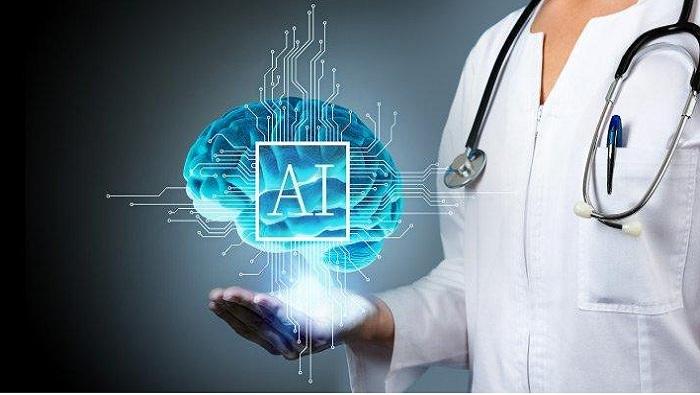Aug 9
2023
Embracing AI in Healthcare: Enhancing Productivity and Effectiveness for Doctors and Nurses
 By Sarah M. Worthy, CEO and founder, DoorSpace.
By Sarah M. Worthy, CEO and founder, DoorSpace.
As the healthcare industry continues to evolve, the integration of artificial intelligence (AI) has emerged as a powerful tool with the potential to revolutionize the way medical professionals work. Contrary to popular concerns, AI will not replace doctors and nurses; rather, it will complement their skills and make them more productive and effective. One significant area where AI will disrupt and bring about transformative change is the “back office” of hospital operations, where manual and outdated processes, along with fragmented systems, have been wasting countless hours of clinicians’ time.
The potential for AI to streamline and optimize various aspects of healthcare administration is vast. One key advantage lies in dramatically reducing the time physicians spend on researching and keeping up with their Continuing Medical Education (CME) and Maintenance of Certification (MoC) requirements.
Traditionally, physicians devote significant amounts of time to stay updated with the latest medical research and advancements, which can be an arduous and time-consuming task. AI-powered platforms can swiftly process vast volumes of medical literature, journals, and clinical trials, providing doctors with curated and relevant information tailored to their specific areas of expertise. This will not only save valuable time but also enhance the accuracy and quality of patient care.
Healthcare leaders can also leverage AI to offer more personalized employee experiences at scale. By analyzing vast amounts of data on individual clinicians’ preferences, work patterns, and career aspirations, AI can create tailored development plans and support systems. This personalized approach can boost job satisfaction and engagement, ultimately leading to higher retention rates among clinical staff.
Gone will be the days of a one-size-fits-all approach to workforce management, as AI empowers organizations to cater to the unique needs of each clinician, thereby fostering a more conducive and fulfilling work environment.
Another profound impact of AI lies in its ability to analyze enormous quantities of data in the blink of an eye. While it would take a person considerable time and effort to sift through such information, AI algorithms can quickly process and identify patterns and insights in seconds. This capability enables organizations to shift from a reactive to a proactive culture.
With AI’s predictive analytics, healthcare institutions can foresee potential challenges and inefficiencies in their workforce and employee experience strategies, allowing them to take proactive measures to address issues before they escalate.
Beyond the aforementioned benefits, AI holds the potential to impact the workflow and experience of doctors and nurses in several other ways:
- Streamlined Administrative Tasks: AI-powered chatbots and virtual assistants can handle routine administrative tasks, such as appointment scheduling, prescription refills, and billing inquiries. By freeing up clinicians from these mundane responsibilities, they can dedicate more time and energy to patient care.
- Enhanced Diagnostics and Treatment Planning: AI-driven algorithms can analyze patient data and medical histories to assist clinicians in making more accurate diagnoses and personalized treatment plans. This can result in improved patient outcomes and reduced healthcare costs.
- Predictive Maintenance: AI can optimize medical equipment maintenance schedules, predicting when devices may require servicing or replacement. This ensures that critical equipment remains functional, preventing disruptions in patient care.
- Remote Patient Monitoring: AI can facilitate remote monitoring of patients, enabling doctors and nurses to track vital signs and detect potential health issues in real-time, even from a distance.
Incorporating AI into the healthcare landscape will enable US hospitals to transition into high reliability organizations (HROs). By harnessing AI’s capabilities to streamline administrative processes, offer personalized employee experiences, and shift to a proactive culture, healthcare institutions can enhance productivity, reduce burnout, and improve patient care – at significantly reduced financial costs.
However, it is crucial to acknowledge that while AI can augment the capabilities of doctors and nurses, it should not replace the human touch in healthcare. The empathy, intuition, and interpersonal skills of medical professionals remain irreplaceable and essential in building trust with patients and delivering compassionate care.
AI is set to become a transformative force in the healthcare industry, empowering doctors and nurses to work more efficiently and effectively. By embracing AI’s potential to revolutionize the “back office” of healthcare operations, organizations can optimize their workforce management, employee experience strategies, and patient care practices. The successful integration of AI will pave the way for US hospitals to become high reliability organizations, ushering in a new era of productivity, patient satisfaction, and medical excellence.